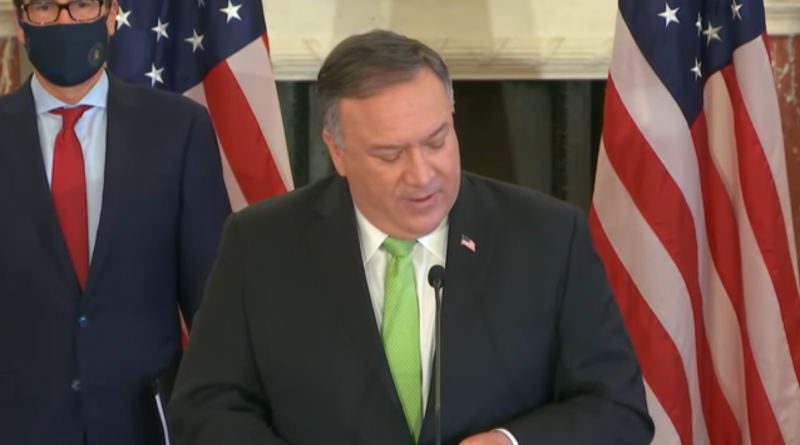U.S. Reimposes Iran Sanctions
Mark Gorman
Staff Writer
The United States reimposed what is, in effect, an arms embargo on Iran last Monday. This move is one opposed by the rest of the UN, and more specifically, the rest of the UN Security Council. The U.S. argues that it can legally do this through a “snapback,” while Iran has been critical towards the U.S. for making this move.
The U.S. moved to reimpose the sanctions on Iran after the UN Security Council voted to allow the sanctions to expire on October 18. U.S. Secretary of State Mike Pompeo argued that the U.S. could legally do this through a “snapback” and was only pursuing this to “remedy Iran’s significant non-performance,” according to Politico. Pompeo also told reporters that “The United States will never allow the world’s largest state sponsor of terrorism to freely buy and sell planes, tanks, missiles and other kinds of conventional weapons.”
The effectiveness of the move is questionable, however. According to ABC, the “snapback” being used to unilaterally implement these sanctions is a feature of the Iran Nuclear Deal that would allow for any party to immediately reimplement sanctions on Iran if Iran was not following the deal. What makes this move questionable is that the U.S. left the deal back in 2018 and the other nations on the UN Security Council do not recognize the move as legal. The only claim to legality is that the U.S. was a party to the deal and that Iran has not been stringently following the deal after the U.S. left, though the other signatories to the deal have committed to keeping the deal alive, even without U.S. involvement.
Another problem is that the UN Security Council does not agree with the move in principle either. One of the reasons the U.S. is attempting the “snapback” now, is due to the Security Council’s vote to end the arms embargo on Iran. According to Al Jazeera, the European signatories, Britain, France, and Germany, have all committed to continuing to provide sanction relief, despite the UN Secretary General Antonio Guterres stating that he would not take any action against the U.S. declaration, since there is uncertainty as to whether anything was initiated. The New York Times added that Russia and China still appear set to continue arms sales to Iran. The New York Times also points out that only the Dominican Republic voted with the U.S. on the Security Council vote to end the arms embargo.
The only thing giving teeth to the sanctions the U.S. is unilaterally imposing is the U.S.’ threat to sanction any country that violates its sanction. However, U.S. ambassador to the UN, Kelly Craft, commented that the U.S. is not concerned about being in the minority on this issue and will continue to go down this path. The ambassador was joined by Mike Pompeo, Treasury Secretary Steven Mnuchin, Defense Secretary Mark Esper, Commerce Secretary Wilbur Ross and National Security Adviser Robert O’Brien at the State Department to announce the move and to show that the executive branch is united on this issue according to ABC.
Iran’s response to the extended sanctions has been to criticize the U.S. for this move and to try to exploit divisions to diplomatically isolate the U.S.. Iranian President Hassan Rouhani said, “America is approaching a certain defeat in its sanctions move… It faced defeat and a negative response from the international community.” According to the BBC, Mr. Rouhani also threatened to “give a crushing response to America’s bullying.” The Iranian Foreign Minister also dismissed the sanctions as “nothing new” and downplayed the effects the sanctions might have. This is amongst growing fears that U.S. and Iranian troops might clash in the coming weeks, though no such conflict has been reported yet.

